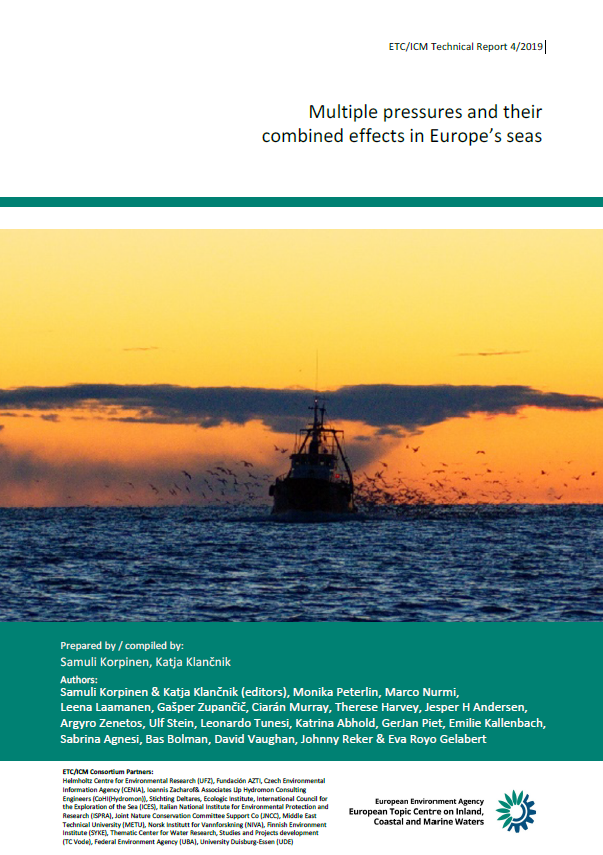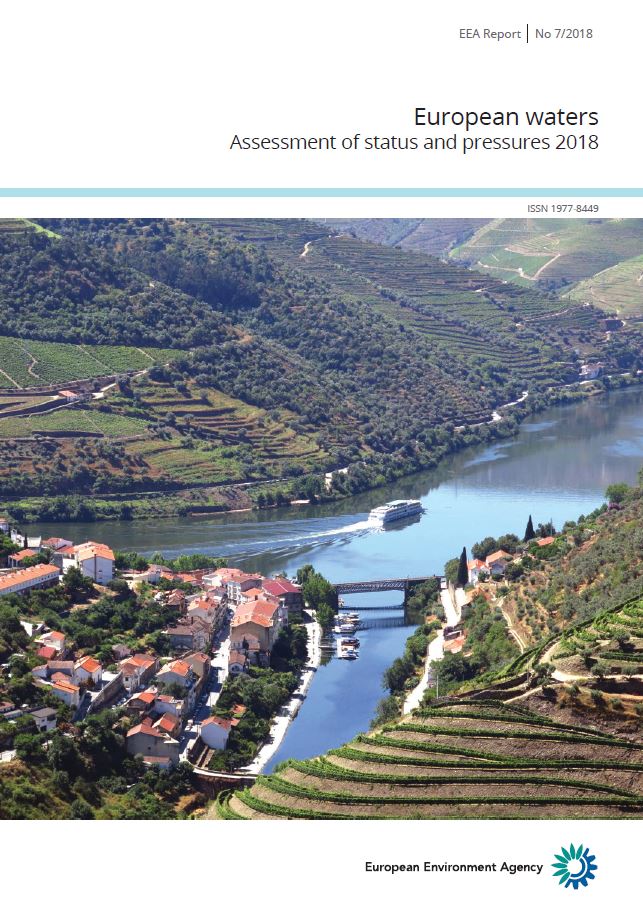Combined Effects of Human Pressures on Europe's Marine Ecosystem
- Publication
- Citation
Korpinen, S., Laamanen, L., Bergström, L. et al. Combined effects of human pressures on Europe's marine ecosystems. Ambio (2021). https://doi.org/10.1007/s13280-020-01482-x
A team of experts from the European Topic Centre on Inland, Coastal and Marine Waters (ETC-ICM) including Ecologic Institute's Dr. Ulf Stein published a study on the "Combined effects of human pressures on Europe's marine ecosystem". The paper was issued by the Journal for environment and society "Ambio". The central objective is to assess the extent to which human activities exert pressures on marine environments and where these pressures lead to degradation of the ecosystem.
The European Union’s Blue Growth strategy supports the development of a European "Blue Economy", regulating activities of economic sectors that interact with marine environment and its resources. Despite efforts to pursue this goal in a sustainable way, Member States have reported that the targets for good environmental status of marine ecosystems – set out in the Marine Strategy Framework Directive – have not been achieved. A poor understanding of the different ways human activities affect the status and the functions of marine ecosystems could be at the core of this conflict. Traditionally, environmental assessments have primarily focused on the tracking of temporal variation of state indicators calculated based on measurements from monitoring stations. More recently, these temporal screenings have been paired with spatial analysis through the application of Spatially Referenced Cumulative Effect Assessments (CEAs). CEAs are data-rich models for the mapping and evaluation of spatial cumulative effects of human activities on marine ecosystems.
The new study, having identified the scarce availability and accuracy of data as a major deficiency of current spatially referenced CEAs, attempts to develop a coherent spatial assessment based on a model fed with numerous data provided by different sources. This is the first time that this type of approach is applied on a European scale, comprising four major marine regions: the Baltic Sea, the Black Sea, the Mediterranean Sea, and the Northeast Atlantic Ocean.
The final results indicate that at current state large parts of Europe's seas are under the influence of human activities and that cumulative effects impede the achievement of good environmental status. This is particularly the case for coastal and shelf areas. These findings show how the ambition to support the growth and development of a "blue economy" fundamentally collides with the commitment to achieve good environmental status in marine environments. Therefore, prerequisites for solving this conflict include the implementation of a more effective management of environmental impacts, better spatial distribution of human activities and the introduction and strengthening of actions that are safeguarding the environment.
The approach taken in our study may realistically present an improvement to traditional state assessments, given its accuracy in both the special and temporal dimensions. Furthermore, levers for further developments in CEA have been identified: the inclusion of non-linear responses and synergistic and antagonistic effects into the model, as well as the reduction of the size of the units of assessment, could mean greater precision in future studies of cumulative effects.


